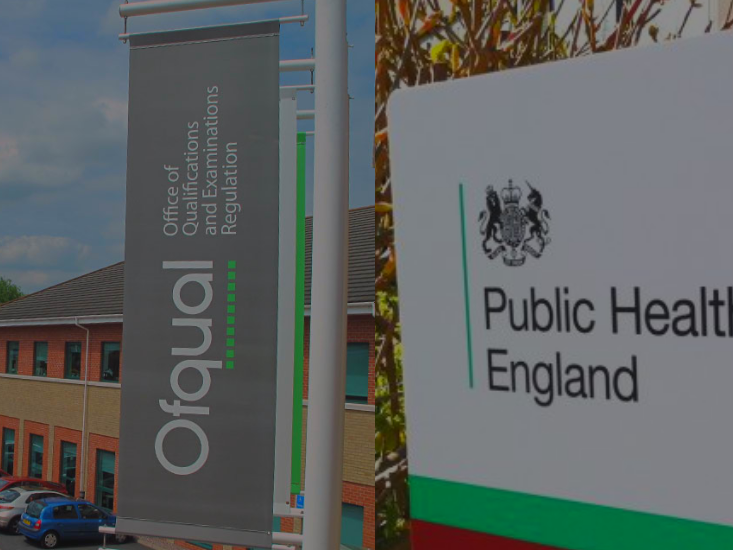Breaking the Goldfish Bowl: The DragonGate Eve of Budget viewpoint
Time to reassess the case for Government relocation
Lost amid much of the fanfare of the Conservative Manifesto launch were some familiar pledges on Government purchasing relationships with small businesses.
Certainly it’s not an issue that doesn’t get the mainstream political pulse racing, but is targeted at an influential and telling constituency of small business owners political parties are notably keen to court.
And understandably so. DragonGate recently completed a piece of consultancy research on behalf of the Cabinet Office to look at barriers to help departments “to identify the areas where SMEs can best add value and how Whitehall could structure contracts and procurement to enable them to compete accordingly.” More of this later.
The main lines from the ‘Forward Together’ manifesto document is that one third of all central government purchasing will come from SMEs by the end of the next Parliament and Whitehall’s buying power will be leveraged to make big contractors comply with the Prompt Payment Code on government contracts and other work as a precondition for bidding.
It is instructive to consider how, writing before the May 2015 general election, Cabinet Office minister Francis Maude claimed his mission was to wrestle control away from the ‘procureaucrats’” of the £50bn money disbursed annually through civil service spending processes.
Before the end of his five year stint, the Whitehall enforcer – since elevated to the peerage – was able to boast that his target for ensuring a quarter of all civil service buying went through small to medium enterprises has been attained. Official spending figures verified after the general election showed SMEs gained a 27% market share, equivalent to £12.1bn, by 2014/15.
Lord Maude argued transparency was key to giving small firms a chance. “Put quite simply: SMEs can’t win contracts they don’t know about”.
He lauded a revamped Contracts Finder sitegov.uk/contracts-finder – which covered all opportunities worth more than £10,000 in central government as well as those above £25,000 in the wider public sector – as a free to use service accessible on smart phones and tablets would help SMEs collectively win further contracts, in addition to the 240,000 deals won already through the portal.
After the May 2015 general election, the Conservative government vowed to increase it spending with SMEs to 33% by 2020. So in effect with the Conservatives also committed to scrapping the Fixed Term Parliaments Act, the pledge could, if so wished, be kicked a year or two further down the road if the Government so wished
In May 2016, however, parliamentary spending watchdog the Public Accounts Committee warned although the Government was reporting against its target for SME spending during the coalition years 2010 to 2015, it was not clear “that SMEs are better able to compete with larger providers or whether they are actually getting more government business than before”.
A recommendation was made that The Cabinet Office and the CCS (Crown Commercial Service) “should help departments to identify the areas where SMEs can best add value and how it will structure contracts and procurement to enable them to compete accordingly”.
In March this year, DragonGate won a Cabinet Office tender to follow up this recommendation and investigate, as consultants, those sectors of purchasing with a high SME presence and low prevalence in both Government buying and the general marketplace.
The task was fourfold. Firstly to identify where Government buying and spend with SMEs met market expectations and secondly where it did not. Thirdly to spot areas of government business where SMEs will continue to operate within a supply chain and to make recommendations on which categories departments should focus on and earmark potential areas of SME growth within them.
Led by former Whitehall procurement expert Simon Lydiard, who was most recently head of group procurement for the Department for Transport, and ably assisted by DragonGate researcher Matthew Finucane we surveyed six major departments of state and a major civil service agency.
In doing so, we undertook a deep dive into six significant market segments: communications; construction; engineering goods; industrial services; logistics and office solutions.
The main problems from the SME perspective are as follows:
· SMEs do not know where to find opportunities with government;
· Contracts Finder requires a drastic overhaul and there needs to be a firmer mandate for departments to use the platform;
· The SME community and the Government must engage better to raise awareness of commercial opportunities;
· Whitehall must develop and effectively communicate their vision for working with SMEs to attain the target;
· Project briefs should be made clearer and more accurate and greater attention should be paid to simplifying the bidding process;
· SMEs in supply chains are still frequently stung by late payments from major contractors.
To overcome these issues, it became evident from our interviews with departmental procurement bosses and representatives from key trade bodies that any attempt to resolve these issues lie in the creation of a more level playing field. The greatest card Government has to play is its comprehensive data of the market, which is not being used to its full potential.
Six of the best – DragonGate recommendations for breaking barriers to SMEs
An agenda for change that would help deliver the 33% SME spending target and overcome barriers to the civil service realising the benefits of flexibility and innovation from the nation’s smaller firms would require implementation of the following six recommendations.
1. Communicate the strong value proposition – including cost-savings, innovative delivery and local economic benefits – of the SME agenda to Whitehall project sponsors and commercial teams.
2. Improve transparency by ensuring all government departments use Contract Finder. Furthermore, civil service buyers should simplify how they write up procurement opportunities so they are easily understood by SMEs and the selection criteria for finding opportunities should be made more intuitive.
3. Departments should use available data to plan opportunities favourable to SMEs at earlier stage and resist tendency to bundle requirements together in way which reduces opportunities. Whitehall buyers should abandon traditional ‘meet the buyer’ events and make greater use of cost-effective digital engagement models through platforms such as LinkedIn – where engagement can be more accurately aligned with the SME audience and better feedback given.
4. Greater use of purchasing systems to replace traditional fixed-term framework contracts.
5. Increased use of Project Bank Accounts which help guarantee SMEs are paid on time by government, irrespective of the prime contractor’s model for payment terms.
6. Make greater use of trade associations as a resource to target SMEs around future opportunities.
If these procurement lessons can be incorporated across central government, and with the willing participation of relevant trade bodies, Whitehall can be well on the way to making a truth of E.F. Schumacher’s economics axiom that small is indeed beautiful.

























